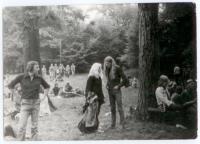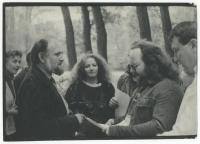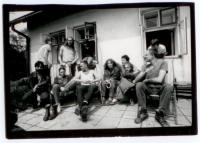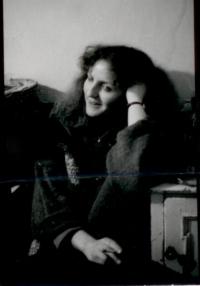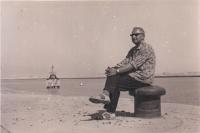My mother told me: So what, in the worst case scenario they’ll lock you up. Others have made it, you’ll make it too

Download image
Iva Vojtková, née Hejdová, was born in Česká Třebová on 2nd September 1957. Ever since she was a child she had to live with the stigma of a politically unreliable person’s child - her father openly opposed the occupation of the country by the Warsaw Pact armies in August 1968. Instead of studying humanities she ended up temporarily as an electric locomotives maintenance worker. In the 1980s her need to act against the communist regime grew into distributing and later preparing the samizdat magazine Vokno and Voknoviny along with participating in other cultural activities of the underground movement with her partner and later husband František Stárek. By the end of the 1980s, the constant surveillance and minor bullying from the Stb resulted in a half-day house search, confiscation of a huge amount of property, an unscrupulous interrogation in Hradec Králové, including death threats to her two underage sons, and finally in June 1989 she was sentenced to one year in prison for indecency. She was soon freed from the grasp of communist oppression by the Velvet Revolution.
